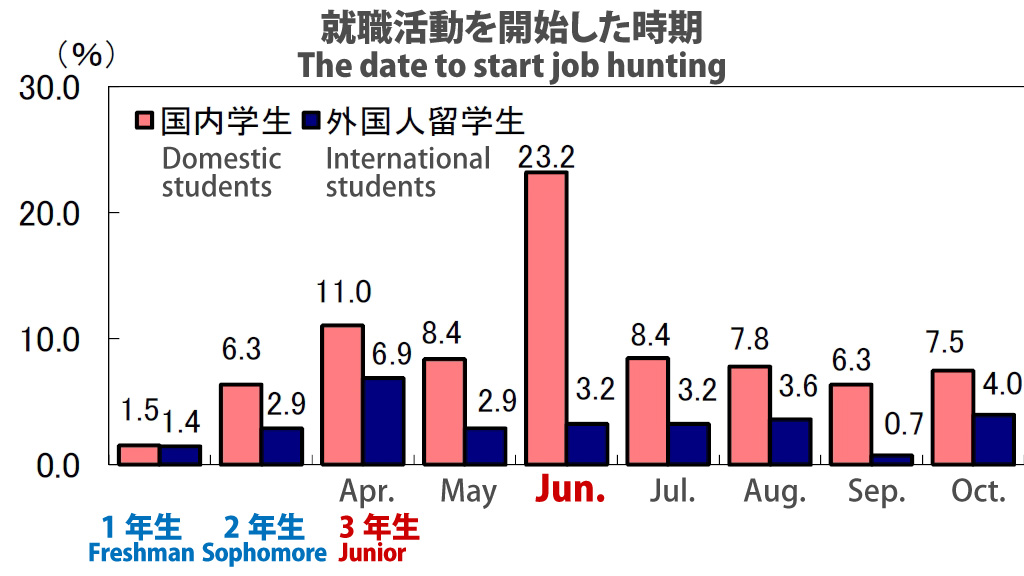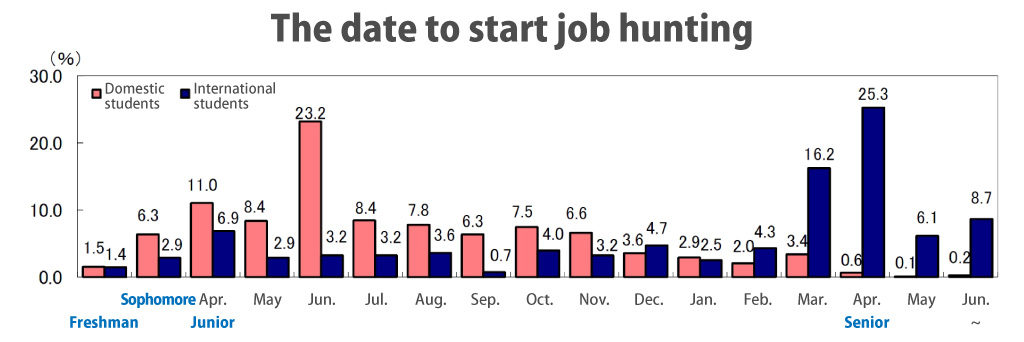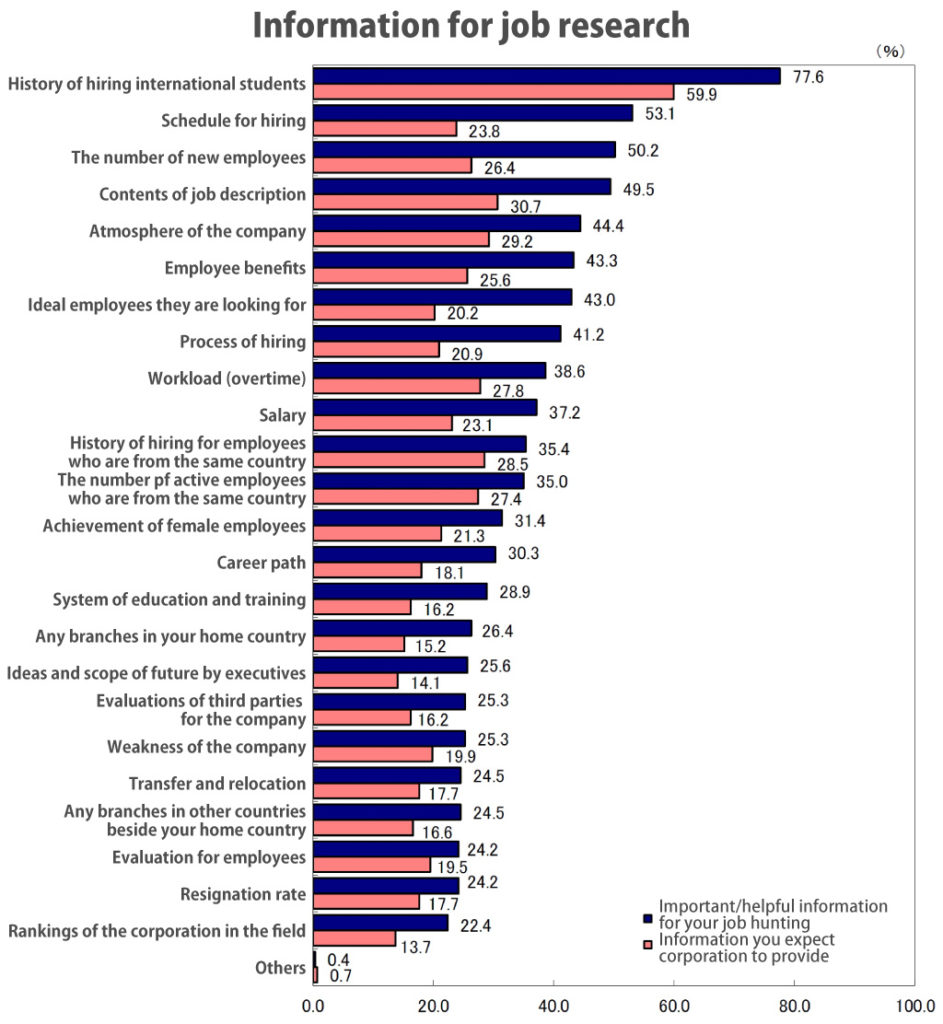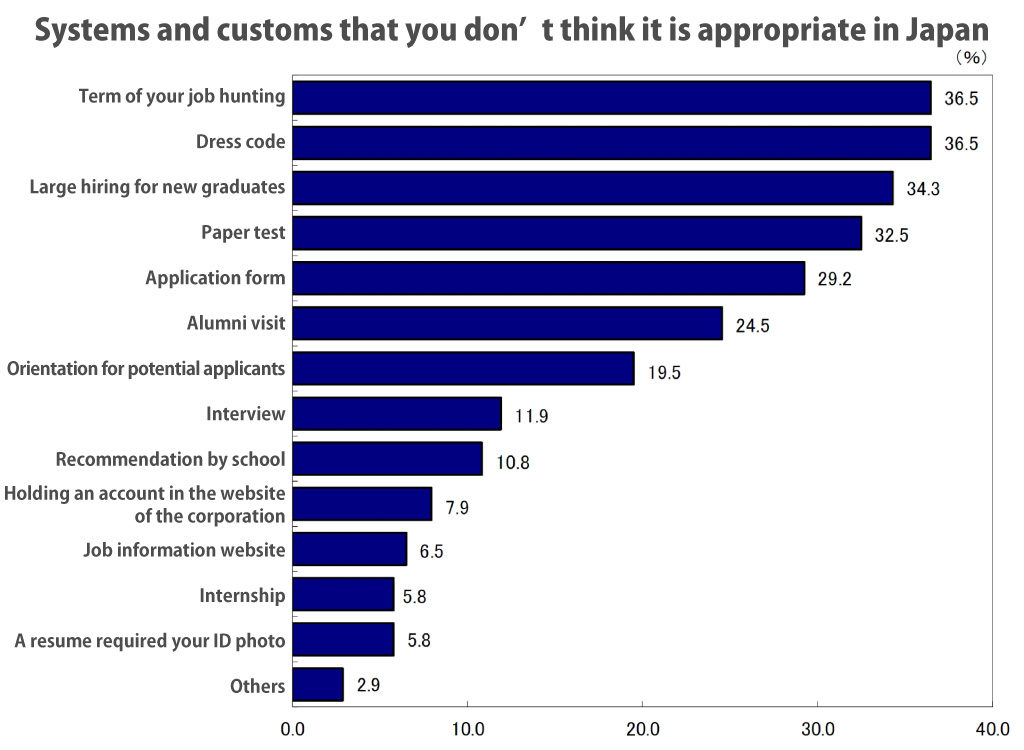2019 graduated international students have hard time to get hired in Japan

This post is also available in 日本語
Compared to other countries, students start job hunting much earlier. Typically, juniors in Japan start to get ready for job hunting in June. As a result, it has been revealed that 63.4 % of domestic students get jobs by July in their senior years, whereas only 24.2 % of international students have jobs. It is highly recommended that international students need to start job hunting much earlier.
Contents
Results of job hunting for international students in 2019
A survey of job hunting and its related subjects was conducted of international students who are expected to graduate (currently seniors in college and the second year in graduate school) in March, 2019 by DISCO Inc. (Time frame for the survey: June 28th, 2018 to July 18th, 2018. 277 Participants).
Results of job hunting for international students in 2019 (issued August 2018)
https://www.disc.co.jp/wp/wp-content/uploads/2018/08/fs201808.pdf (Japanese)
Survey Item
- Current Japanese skill
- Expectation of your ideal position in the future
- Kinds of expected companies you are looking for
- Reasons of your job hunting in Japan
- Images of Japanese corporations
- Expected size and kinds of
corporations you are looking for

- Critical points for you to look for corporations
- Internship
- Expected start day of work

- The number of corporations you
have applied for and its outcome

- Difficulty of your job hunting
- Things you expect corporations to focus on
- Important/helpful information
for your job hunting and information you expect corporation to provide

- The sources of your information for your job hunting
- Systems and customs that you
don’t think it is appropriate in Japan

Survey Summary
Targets: International students who are expected to graduate in March 2019 (currently seniors in college and the second year in graduate school).
Survey method: Online survey
Survey term: June 28th, 2018 to July 18th, 2018
Sample size: 2,769 international students who are registered in “Career+ Syukatsu 2019”
- How Many Can You Answer? [Résumé Quiz] – Pictures, Information, and More (Part 1)
- [Explained by a Legal Professional] Points to consider when you wish to work in Japan
- How to Write/ “Taishokunegai (Resignation Requests)” and “Taishokutodoke (Resignation Notices)”
- [For Foreign Nationals] Examples of Questions Frequently Asked at Interviews
- [Explained by a Legal Professional] Different Types of Status of Residence and its Rules









